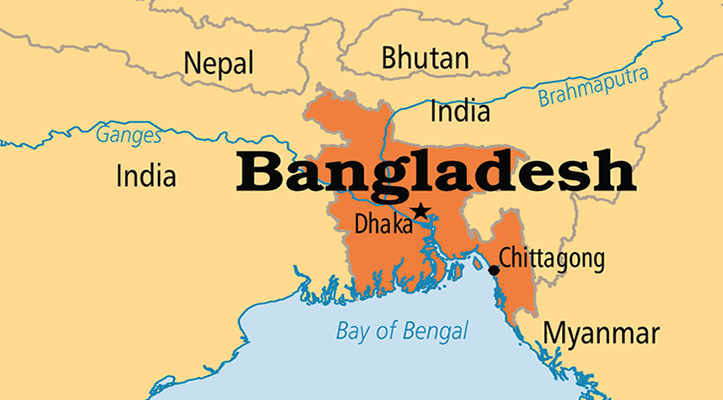Members of Bangladesh’s transgender hijra community, who have been excluded from other prayer services, have been invited to attend a new mosque in the Muslim-majority country and assured the opportunity to worship without facing discrimination.
The new mosque, a simple building with walls and a roof made of tin, serves as a gathering place for the minority group, which has gained more legal and political recognition in recent years but still faces deep-seated prejudice.
Community leader Joyita Tonu declared during a speech to the crowded congregation, “Now, no one can refuse a hijra from praying in our mosque.”
The visibly moved 28-year-old, who wore a white headscarf, added, “No one can ridicule us.”
The mosque, located near Mymensingh, north of the capital Dhaka along the banks of the Brahmaputra river, was constructed on government-donated land after the city's hijra community was expelled from an established congregation.
“I never thought I would have the chance to pray at a mosque again in my life,” remarked Sonia, 42, who had a passion for reciting the Koran and attended an Islamic seminary during her childhood.
However, when she revealed herself as hijra, a term commonly used for transgender women in South Asia, she was barred from praying in a mosque.
“People used to tell us, ‘Why are you hijra people here at the mosques? You should pray at home. Don’t come to the mosques,'” recalled Sonia, who only uses one name.
“It was humiliating for us, so we stopped going,” she shared. “Now, this is our mosque. Now, no one can say no.”
– ‘Just like anyone else’ –
Hijra have experienced improved legal recognition in Bangladesh, where members of the community have been officially permitted to identify as a third gender since 2013.
Some have entered Bangladeshi politics, including a transgender woman who was elected as the mayor of a rural town in 2021.
However, hijra still grapple with the struggle for basic recognition and acceptance, and they lack property and marriage rights.
They also frequently face discrimination in employment and are more likely to be victims of violent crime and poverty compared to the average Bangladeshi.
Additionally, hardline Islamist groups have opposed the inclusion of transgender Bangladeshis in school textbooks, organizing protests to demand that the government abandon its effort to incorporate them into the curriculum.
According to Mufti Abdur Rahman Azad, the founder of a hijra charity, the new mosque is the first of its kind in the country.
He added that a similar initiative planned in another city was halted last month following a protest by locals.
The Dakshin Char Kalibari Masjid for the Third Gender was built with contributions of time and money from numerous local hijra women and was opened this month.
The mosque also includes a burial ground, as a local Muslim cemetery refused to bury a young hijra woman on its premises last year.
The mosque’s imam, Abdul Motaleb, 65, stated that the mistreatment of the hijra community contradicts the teachings of his faith.
“They are no different from any other people created by Allah,” the cleric told AFP.
– ‘No one can be turned away’ –
“We are all human beings. Some may be men, some may be women, but all are human. Allah revealed the Holy Koran for everyone, so everyone has the right to pray, and no one can be refused.”
Motaleb mentioned that other people from Bangladesh could learn from the hijra's faith and strength.
“Since I have been here at this mosque, I have been impressed by their character and actions,” he said.
The new mosque is already addressing prejudice. Local resident Tofazzal Hossain, 53, has offered Friday prayers there for a second week in a row.
He said living and praying with the hijra community has changed his “misconceptions” about them.
“When they started to live with us, many people said many things,” he told AFP.
“But we’ve realized what people say isn’t accurate. They live righteously like other Muslims”.
Tonu hopes to expand the simple mosque to accommodate more people.
“God willing, we will do it very soon,” she told AFP.
“Hundreds of people can offer prayers together.”
AFP



